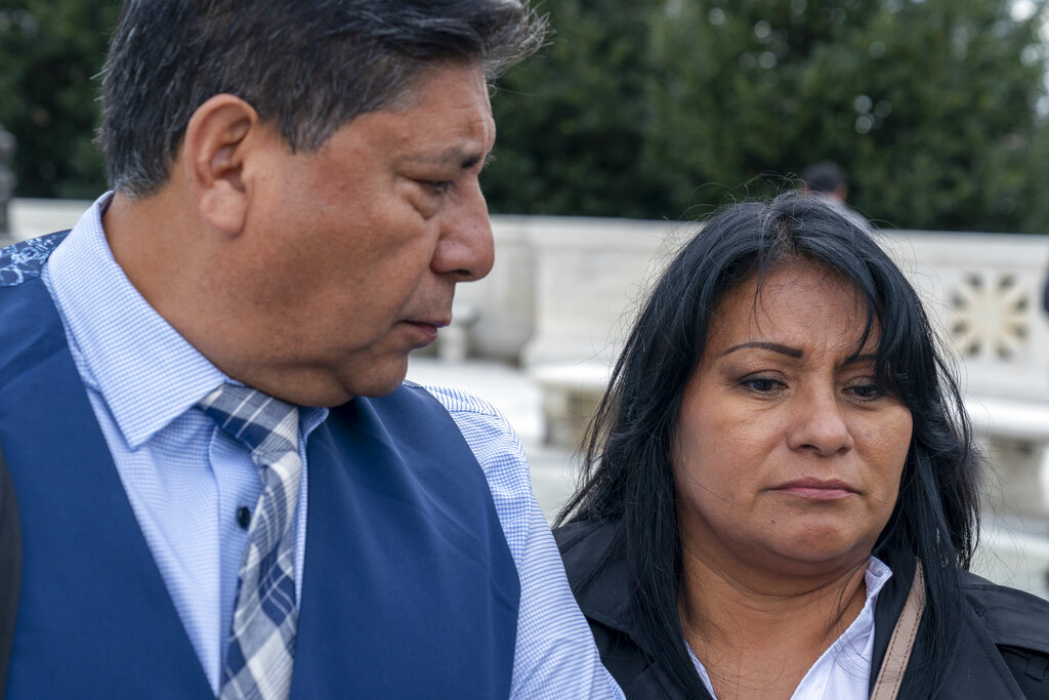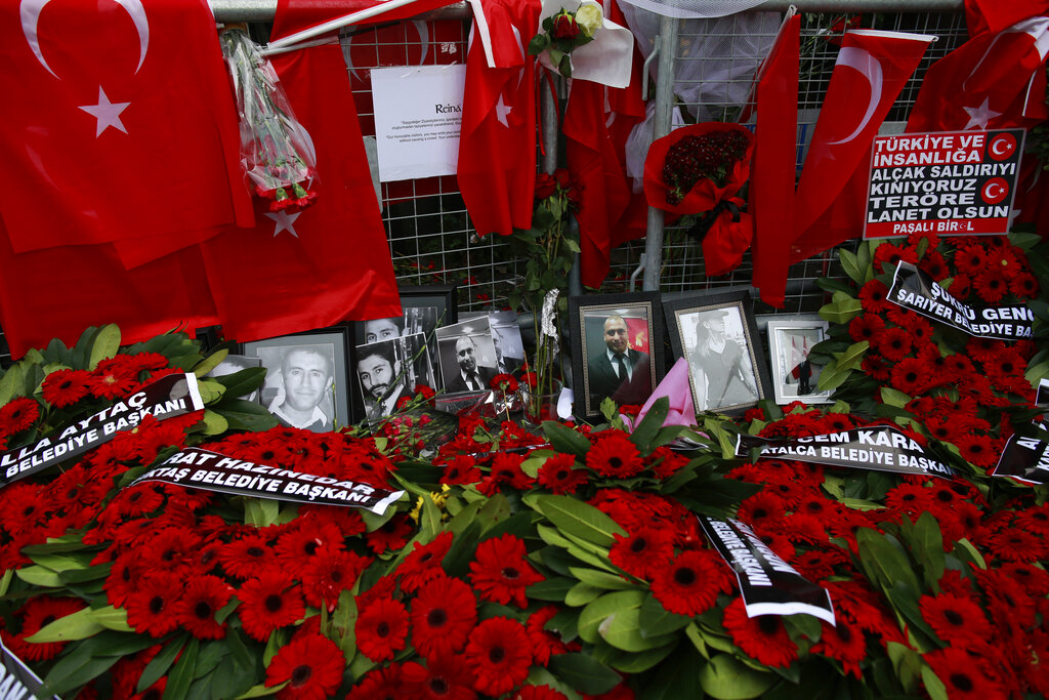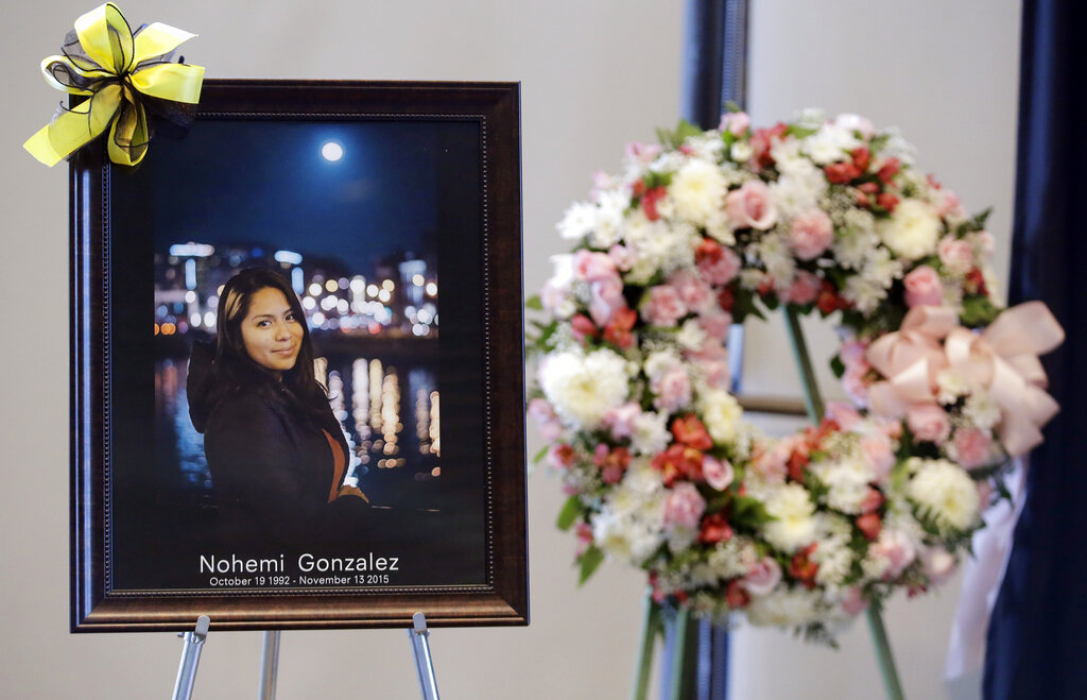In Gonzalez v. Google and Taamneh v. Twitter, the 9th U.S. Circuit Court of Appeals in 2021 addressed the liability of social media platforms for allowing the terrorist group ISIS to post videos, communicate its messages and radicalize new recruits.
Families of people killed in ISIS attacks sought damages under a 2016 provision in the Anti-Terrorism Act that allowed secondary civil liability for aiding and abetting acts of international terrorism.
The 9th Circuit in Gonzalez ruled that Section 230 of the Communications Decency Act barred most of the families’ claims. Section 230 protects internet service providers from being held liable for any content posted by third-party users on their platforms.
In Taamneh, however, the 9th Circuit held that the family members adequately stated a claim for aiding and abetting terrorists and reversed and remanded the case back to a federal district court for further action.
Both decisions were appealed to the U.S. Supreme Court, which heard arguments in February 2023.
The Supreme Court is considering:
- Whether the liability protections provided by Section 230 also protect social media platforms when those platforms “recommend” terrorists’ video and content through their algorithms; and
- Whether a social media company provides substantial assistance to terrorists by allowing them to operate freely on their platforms and can be held liable for aiding and abetting them in their attacks by not taking more aggressive action to remove their content.
YouTube is central to ISIS terrorism, family says
In the case against Google, which owns YouTube, the father of Nohemi Gonzalez sought damages after his 23-year-old daughter was shot and killed by ISIS terrorists while she was enjoying an evening meal with her friends at a Paris cafe. The shooting was part of a broader series of attacks in Paris on Nov. 13, 2015, which included several mass shootings and suicide bombings.
The day after the Paris attacks, ISIS claimed responsibility by issuing a written statement and releasing a YouTube video.
Gonzales alleged that at the time of the attacks, ISIS was one of the largest and most widely recognized terrorist organizations in the world and carried out the attacks as a means of instilling terror in the public. The messages it communicated before, during and after its attacks, including through videos on YouTube, were part of the physical, emotional, and psychological impact ISIS desired to achieve.
“The Gonzalez complaint alleges that YouTube ‘has become an essential and integral part of ISIS’s program of terrorism,’ and that ISIS uses YouTube to recruit members, plan terrorist attacks, issue terrorist threats, instill fear, and intimidate civilian populations,” the opinion said. One of the attackers in the cafe’ shooting, for example, appeared in an ISIS YouTube video delivering a monologue aimed at recruiting jihadi fighters to join ISIS.
Parents say YouTube’s algorithms recommended terrorists’ video
The family said that Google’s use of computer algorithms to match and suggest content to users based on their viewing history led to recommendations of ISIS content and that by doing this, Google helped ISIS spread its message.

If YouTube received a complaint about ISIS videos, the company would soemtimes remove the content, but it did nothing to ensure that the terrorists would not simply re-establish the accounts with new identifiers. The family also contended that Google sometimes declined to remove terrorists’ accounts or removed only portions of ISIS posts.
The 9th Circuit, however, agreed with Google that Section 230 of the Communications Decency Act that bars civil liability of an internet service provider for content posted by others precluded any liability claims over terrorism.
Beatriz Gonzalez, right, the mother of 23-year-old Nohemi Gonzalez who was killed in the Paris terrorist attacks, and stepfather Jose Hernandez, speak outside the Supreme Court on Feb. 21, 2023, in Washington. A lawsuit against YouTube from the family of Nohemi Gonzalez was argued at the Supreme Court. (AP Photo/Alex Brandon)
“Congress designed §230 ‘to promote the free exchange of information and ideas over the Internet and to encourage voluntary monitoring for offensive or obscene material,’” the circuit court said, quoting from a previous ruling.
“To avoid chilling speech, Congress ‘made a policy choice… not to deter harmful online speech through the separate route of imposing tort liability on companies that serve as intermediaries for other parties’ potentially injurious messages.’”
By passing Section 230, Congress sought to allow interactive computer services to perform some editing of user content — deleting some messages on message boards, for example — without being considered a publisher liable for what they did or didn’t delete, the 9th Circuit said.
The 9th Circuit rejected Gonzalez’s claims that YouTube’s algorithm recommendations would qualify as content created by Google for which the company would be liable.
“Though we accept as true…the allegation that Google’s algorithms recommend ISIS content to users, the algorithms do not treat ISIS-created content differently than any other third-party created content, and thus are entitled to §230 immunity,” the 9th Circuit said.
Family claims Twitter, Google, Facebook aided and abetted terrorists in Istanbul attack
In the Taamneh case, which sued Twitter, Google and Facebook, the lower court did not consider Section 230 immunity, but instead dismissed the families’ claims for failure to plausibly allege liability for “aiding and abetting” terrorists or “conspiracy.”

Photos of victims lie outside the Reina club following the New Year’s Day terrorist attack in Istanbul in 2017. U.S. relatives are seeking to hold American social media companies liable under the Anti-Terrorism Act for aiding and abetting ISIS terrorists in carrying out the attack, claiming they allowed the terrorist groups to use their platforms to recruit people to join ISIS, promote its terrorist agenda, solicit donations and threaten and intimidate civilian populations. (AP Photo/Emrah Gurel) The 9th Circuit reversed the lower court.
The Taamneh claims arose from the murder of Nawras Alassaf at a nightclub in Istanbul on Jan. 1, 2017, by Abdulkadir Masharipov in a terrorist attack. Masharipov had filmed a “martyrdom” video in which he stated he would carry out a suicide attack in the name of ISIS. ISIS gave him directions on how to carry out the attack in the nightclub. The attack killed 39 people and injured 79 others.
Relatives of Alassaf said that ISIS depends on Twitter, Facebook and YouTube to recruit people to join ISIS, promote its terrorist agenda, solicit donations and threaten and intimidate civilian populations. The social media companies, the family members said, were well aware of ISIS’s use of their platforms, but refused to take meaningful steps to prevent use.
The relatives sought relief under the civil remedies section of the Anti-Terrorism Act that permits U.S. citizens to recover damages for injuries suffered “by reason of acts of international terrorism.” A 2016 amendment to the Anti-Terrorism Act added secondary civil liability for “aiding and abetting, or conspiring to commit, acts of international terrorism.”
The 9th Circuit held that the social media platforms met the factors required by the law that the assistance was “knowing” and “substantial.” The court noted that the ISIS accounts first appeared on Twitter in 2010, on Facebook as early as 2012 and on YouTube as early as 2013.
Before the era of social media, “ISIS’s predecessors were limited to releasing short, low-quality videos on websites that could handle only limited traffic,” the Taamneh plaintiffs stated.
“ISIS recognized the power of (the social media company’s) platforms, which were offered free of charge, and exploited them. ISIS formed its own media divisions and production companies aimed at producing highly stylized, professional-quality propaganda. The (lawsuit) further alleges that defendants’ social media platforms were instrumental in allowing ISIS to instill fear and terror in civilian populations. By using defendants’ platforms, the Taamneh Plaintiffs allege that ISIS expanded its reach and raised its profile beyond that of other terrorist groups,” the 9th Circuit observed.
“These are plausible allegations that the assistance provided by defendant’s social media platforms was integral to ISIS’s expansion, and to its success as a terrorist organization,” the 9th Circuit concluded.
That set the stage for an appeal to the U.S. Supreme Court, which heard arguments in both cases in February 2023.
Supreme Court: Families failed to show social media companies ‘aided and abetted’ terrorism
During oral arguments, the Supreme Court justices seemed concerned that overturning the 9th Circuit that might expose the social media companies to broad new liability. Some of the justices seemed to indicate that the job of interpreting or changing the liability protection for social media companies was a policy decision best left to Congress.
A similar reluctance to find that the social media companies may have aided and abetted terrorists also emerged in questions by some justices. Justice Samuel Alito, for example, was concerned about how courts could draw the line on “knowingly” providing assistance and what amounted to “substantial” assistance.”
The Court, in an opinion written by Justice Clarence Thomas, on May 18, 2023, reversed the 9th Circuit in Twitter v. Taamneh, saying that the families failed to state a claim that showed that the social media companies “aided and abetted” terrorism, relying on a framework drawn from common law in Halberstam v. Welch that set out the meaning of the phrase as a conscious, voluntary and culpable participation in another’s wrongdoing.
Thomas said that the family members made no allegations that the companies’ relationship with ISIS was significantly different from their arm’s length, passive and largely indifferent relationship with most users. The families also provided no reason to think that the companies were consciously trying to help or otherwise participate in the terrorist attack in Turkey. Nor did they show that the social media companies had any duty that would require them or any other communication-providing services to terminate customers after discovering that the customers were using the service for illicit ends.
“Given the lack of any concrete nexus between defendants’ services and the Reina attack, plaintiffs’ claims would necessarily hold defendants liable as having aided and abetted each and every ISIS terrorist act committed anywhere in the world,” Thomas wrote.
On the same day, the Court issued a per curiam decision in Gonzalez v. Google, declining to address the issues raised about the application of Section 230 protection from liability for aiding terrorists. “We think it is sufficient to acknowledge that much (if not all) of the plaintiffs’ complaint seems to fail under either our decision in Twitter or the Ninth Circuit’s unchallenged holdings below. We therefore decline to address the application of §230 to a complaint that appears to state little, if any, plausible claim for relief. Instead, we vacate the judgment below and remand the case for the Ninth Circuit to consider plaintiffs’ complaint in light of our decision in Twitter.“
This article was published May 1, 2023 and updated May 18. Deborah Fisher is director of the John Seigenthaler Chair of Excellence in First Amendment Studies.

